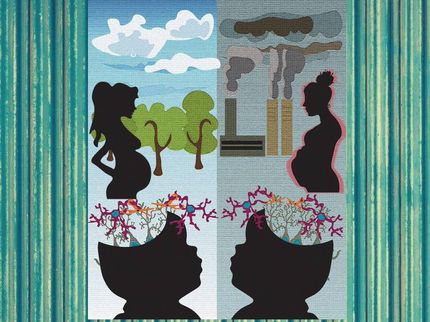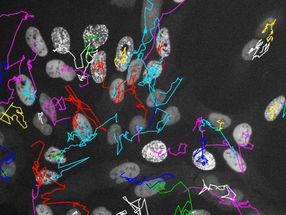The Neurobiology of Trust
Researchers Demonstrate that Mental Disorders such as Autism May in the Future Be Treatable through a Combination of Neurohormones and Psychotherapy
Few topics in the neurosciences have generated as much excitement in recent years as research on oxytocin. This neurohormone has been known for its significance for childbirth and breastfeeding for well over half a century. In the past two decades, studies conducted on animals have indicated that it also plays a crucial role in social bonding behavior and in the reduction of stress and anxiety in social situations.
Prof. Dr. Markus Heinrichs, Professor of Biological Psychology at the University of Freiburg, was the first scientist ever to study the significance of oxytocin for social behavior, anxiety, and stress in human beings. In a series of studies, some of them published in the scientific journal Nature, he demonstrated that oxytocin administered as a nasal spray increases subjects’ trust and empathy while reducing their anxiety and stress. An important expectation attached to research on this hormone system is that it will lead to concrete clinical applications. So far, mental disorders involving social deficits have been particularly difficult or impossible to treat through traditional therapeutic means. Only half of social phobia patients can currently be treated successfully with therapy, and no effective therapy has yet been developed for healing patients with autism.
In the current issue of Nature Reviews Neuroscience, a team of neuroscientists including Markus Heinrichs and Dr. Gregor Domes from the University of Freiburg and Prof. Dr. Andreas Meyer-Lindenberg and Prof. Dr. Peter Kirsch from Heidelberg’s Central Institute for Mental Health introduce a new model addressing the relevance of neurohormones for the “social brain.” By integrating methods from the behavioral sciences as well as from hormone, genetic, and brain research, the scientists succeed in detailing new clinical perspectives for treating mental disorders involving social deficits. “The ‘psychobiological therapy’ we describe does not involve the development of a new medication, but rather a ‘propsychotherapeutic’ stimulation of a neurohormone system—meaning a combination of hormones and interactional psychotherapy,” explains Markus Heinrichs. Since transferring from the University of Zurich to the University of Freiburg in late 2009, Heinrichs has headed the Outpatient Psychotherapy Clinic for Stress-Related Disorders and has also conducted clinical studies in cooperation with the Department of Psychiatry at the Freiburg University Medical Center.
Original publication
Meyer-Lindenberg, A., Domes, G., Kirsch., P. & Heinrichs, M. (2011). Oxytocin and vasopressin in the human brain: social neuropeptides for translational medicine. Nature Reviews Neuroscience, 12, 524-538.
Most read news
Original publication
Meyer-Lindenberg, A., Domes, G., Kirsch., P. & Heinrichs, M. (2011). Oxytocin and vasopressin in the human brain: social neuropeptides for translational medicine. Nature Reviews Neuroscience, 12, 524-538.
Organizations
Other news from the department science

Get the life science industry in your inbox
By submitting this form you agree that LUMITOS AG will send you the newsletter(s) selected above by email. Your data will not be passed on to third parties. Your data will be stored and processed in accordance with our data protection regulations. LUMITOS may contact you by email for the purpose of advertising or market and opinion surveys. You can revoke your consent at any time without giving reasons to LUMITOS AG, Ernst-Augustin-Str. 2, 12489 Berlin, Germany or by e-mail at revoke@lumitos.com with effect for the future. In addition, each email contains a link to unsubscribe from the corresponding newsletter.






















































